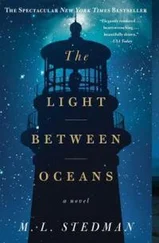“What gives you the right to put your hands in my son’s mouth, unless he is choking. That is private.”
“I can’t tell if these diseases are the same or different. Lord have mercy.”
Three children stood outside at the window watching. One gnawed a fist. A woman sighed into her cell phone about a still born baby’s birth.
“You think I have sass? You should meet my little sister. Her first text was ‘Fuck you.’ She’s a sweetie. I’m not as girly as my sister. She wears tiny tutu skirts. I mean, she’s a slut. My brother brought a girl home freshman year but she was like a cow and we gave him shit and he doesn’t talk about girls anymore. My whole family makes fun of each other’s boyfriends. My dad is very open about his girlfriends.”
Leah walked to her car across the parking lot and looked up at the sound of a car bleating and saw that worn-looking woman walking by, along the guard rail. Leah asked a few of the women at work about her. Leah said, “Do you know anything about that woman that just walks around town?” but as soon as she said it, she realized that ‘walk’ wasn’t the right word. It was too casual. This woman was focused. She moved as though compelled by some singular purpose which was beyond Leah’s understanding. The right word was beyond Leah’s grasp as well. Only a couple people knew whom she was talking about. One person said that the woman used to work at a fast food restaurant or maybe at the department store. “Have you ever seen her nails? They are perfectly done.” Another person said that they’d heard that the woman had once been raped, maybe even multiple times, and that she put all that makeup on and walked around like that to look crazy so people would leave her alone. As she passed the woman in her car, pulling out of the shopping center parking lot, Leah considered slowing and offering her a ride, asking her if she needed anything, asking if she would like to come by the nonprofit to see if there was anything they could do for her, but Leah didn’t.
On the sidewalk, a card table with fresh tomatoes on it. A woman in a spaghetti-strap shirt and short green shorts feels fresh fruit and shouts to an elderly woman behind the wheel of a turquoise Nissan. Tinted windows, child in the backseat, playing with an empty soda pop bottle.
A boy sings from behind bushes and falls silent.
“Could someone walk me to the church?” a blind man asks. “Can I have your elbow?” He taps his cane and creates the world. Taps, but does not move. Someone approaches and places the blind man’s hand on an elbow and leads the way, but the person does not speak. At the steps of the church, the person walks away.
The young singer takes up his song again. The turquoise Nissan is gone.
The boy told that when his family moved into the blue house on the corner, they found a room in the basement hidden by a bookcase. In the room was a rusted dagger with a leather-covered handle and painted on the wall images he would not describe. “I mean, just like weird stuff,” he told, “sick and perverted stuff.” Everyone nodded as it had the ring of truth. Across the street from the blue house was a Victorian where a minister lived until his death and then a young family with three daughters. The family was up from Florida. The girls told that their house was haunted. Lights cut off. Plates poured from cupboards in arcs. The youngest heard the voices of men arguing in the fireplace. Behind a brick they found a note written in an illegible hand, written in code, written backward. Obscure and spoiled by time. No one ever saw the note. Everyone waited for the girls to bring it to school, but they never remembered. No one ever saw the ruin of plates. No one ever saw the lights flicker, dim, die. You could hear their father, voice bruising, if you walked by the Victorian on a spring afternoon. After the divorce, the mother moved with the girls back to Florida, but not before the middle daughter became engaged to a libertarian college student from Alabama. The boy in the blue house told this too: Sometimes he could see the girls. Through windows. In their house. “I am Christian, though,” he says. “I just want to pray for them.” He never showed anyone the secret room. His parents, having said a prayer, sealed it up.

When Leah Shepherd got the car, which had been cheap and was old and every year cost more to maintain than it was worth, she showed her parents, expecting that they would see and understand and turn and look at her and see her and that they would all get in it and drive to the beach together, like they used to do, or even just around town and they would reminisce, and she drove up and leapt out of the car and ran inside and said, “You have to come see my new car,” and her mother and father looked at it in the drive and smiled distractedly and shrugged. She wanted them to understand without her having to tell them.
Everyone told her that she needed to get rid of the thing and get something more reliable and with better gas mileage and less blue, but she didn’t listen.
Lightning cracks and the world is static. Night, the night yard, the faraway street light.
Scrambled eggs, sausage links, glistening carafes of milk. A gleam of grease in the faint light. Silver platters of food clanging loudly on the hardwood floor. Laughter. Great links of meat.
Mirrors made them soldiers in a chaotic but clockwork army — writhing on lances, crawling along the ground. The smell of cooling sausage patties and warming shrimp cocktails waft in intermittent waves on the whims of the air conditioner that groans loudly over the pulsing mechanical beats. He drove the next morning from Graham, North Carolina, to Crow Station, Kentucky. When he closed his eyes, he could still see the waves of women dancing and the light on their dimpled skin and smell of the wet dumpster he’d parked beside to spend the night.
The man in the door of the motel room by the train tracks raises the half-exhausted cigarette to his lips, the tip of which contains a bright carbuncle that flashes as he breathes in, and looks at the variegated pools on the wet surface of the road where it has just rained.
The men digging the grave for Saturday’s service talked quietly as the sun began to set.
“Remember that boy went missing back, I don’t know, thirty-some years ago. In the eighties?”
“No.”
“I wonder if they ever found out what happened to him.”
A shrug.
“I’ll tell you, it’s like I say, it’s got so that you can’t trust no one no more. I mean, used to be, children could go outside alone, go all over, you know. But not now. My momma used to send me clear across town to my uncle’s house and there weren’t nothing to be afraid of.”
Dogs marked gates. Starlings clouded. The sound of metal on earth.
“You don’t remember that? I still think about that family some. I mean, my boy, he’s had his troubles, but at least I can go visit him on weekends.”
The other man thought for a moment, shrugged, and told a story about a girl he knew who liked to do it and have people watch. The man recounted the story and they stood, leaning on their shovels.

“A prayer for a husband to get more hours of work. A prayer for a granddaughter who has to have knee and feet surgery. A prayer for a husband to be convicted of using profanity. A prayer for a daughter struggling with depression and mental illness. A prayer for a son addicted to pornography and cartoons. A prayer for a wife to learn to enjoy the work she has been blessed with. A prayer for a daughter to not feel resentment about having to leave her job and help her mother care for her disabled sister. A prayer for a baby to be born. A prayer for an ex-son-in-law to concede on how to raise a child. A prayer for a mother-in-law to see the good in her daughter-in-law. A prayer for a child to stop sassing.” And then a swell of strings and commercial break.
Читать дальше













